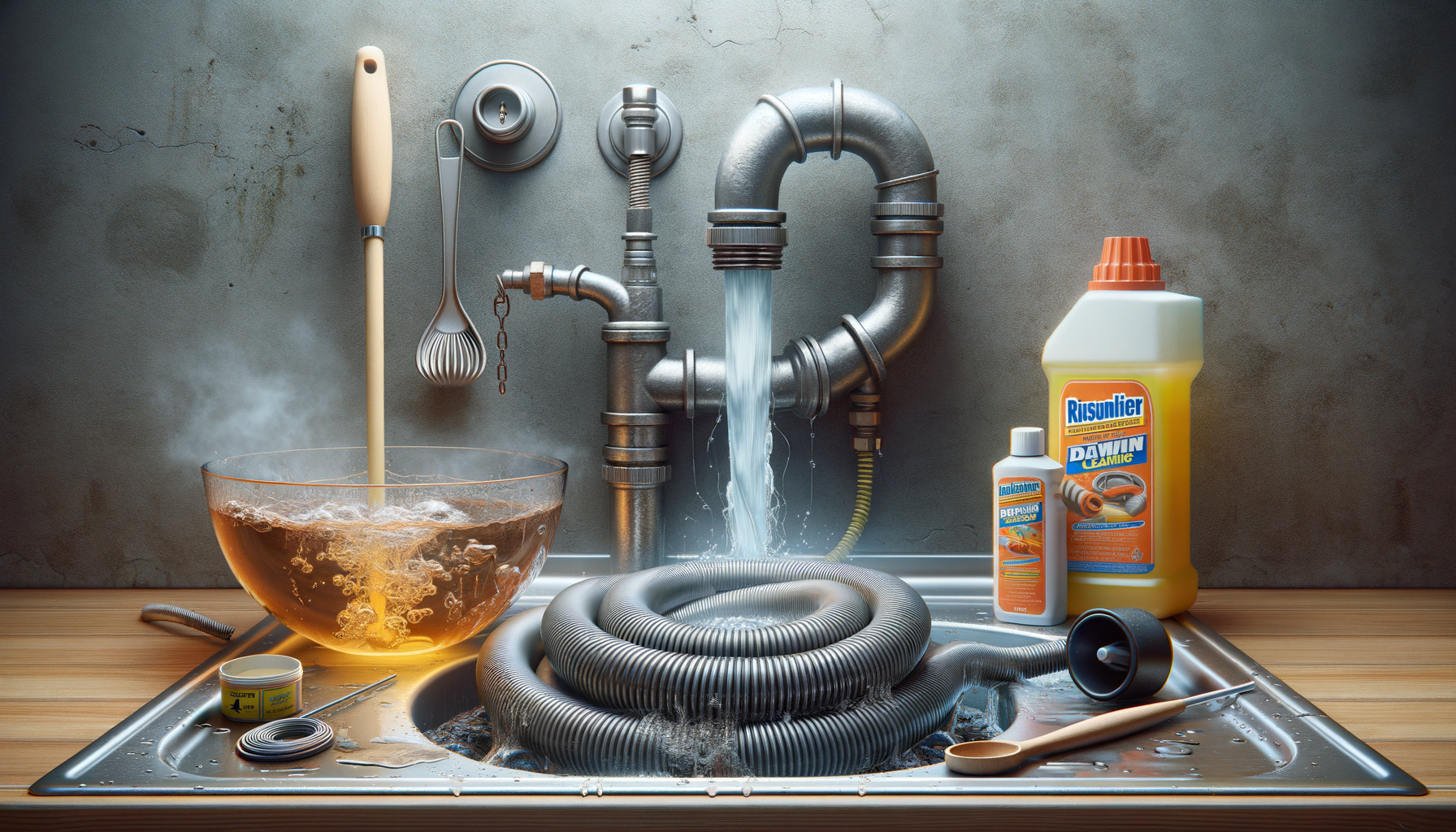
Clogged Drain? Try these 4 tricks before calling a plumber.
Understanding the Importance of Drain and Pipe Cleaning
In every household, drains and pipes play a crucial role in maintaining hygiene and functionality. However, they are often overlooked until a problem arises. Regular cleaning of drains and pipes is essential to prevent clogs, backups, and unpleasant odors. Clogs can lead to water damage and costly repairs if not addressed promptly. Moreover, clean pipes ensure the efficient flow of water and waste, contributing to the overall health of your plumbing system.
Drain and pipe cleaning is not just about removing blockages; it’s about maintaining a system that supports daily activities seamlessly. Whether it’s in the kitchen, bathroom, or laundry room, each drain has its own unique requirements. Understanding these can help in applying the right cleaning techniques, ensuring longevity and efficiency.
Common Causes of Clogged Drains
Clogged drains are a common household issue, often caused by a variety of factors. Understanding these causes can help in preventing them. Some of the most frequent culprits include:
- Hair: In bathrooms, hair is a major contributor to clogs as it binds with soap scum to form stubborn blockages.
- Grease and Fat: In kitchens, grease and fat can solidify in pipes, leading to significant build-ups over time.
- Food Waste: Even with a garbage disposal, certain food particles can cause clogs, especially fibrous or starchy items.
- Soap and Detergent: Residues from soap and detergents can accumulate in pipes, particularly in combination with hair and other debris.
- Foreign Objects: Items like toys, wipes, and feminine hygiene products can cause severe blockages if flushed down the toilet.
By being aware of these common causes, homeowners can take proactive measures to reduce the risk of clogs and maintain a healthy plumbing system.
Effective Methods for Drain and Pipe Cleaning
There are several effective methods for cleaning drains and pipes, each suited to different types of clogs and plumbing systems. Here are some widely used techniques:
- Plunging: A plunger can be highly effective for minor clogs in sinks and toilets, using suction to dislodge blockages.
- Boiling Water: Pouring boiling water down the drain can help dissolve grease and soap scum, particularly in kitchen sinks.
- Baking Soda and Vinegar: This natural remedy creates a chemical reaction that can break down minor clogs and deodorize drains.
- Drain Snakes: Also known as augers, these tools can reach deeper into pipes to remove stubborn clogs.
- Hydro Jetting: This professional method uses high-pressure water jets to clear severe blockages and clean pipe interiors.
Choosing the right method depends on the severity and location of the clog. Regular maintenance using these techniques can prevent future plumbing issues.
The Role of Professional Plumbing Services
While many drain and pipe cleaning tasks can be handled by homeowners, there are situations where professional plumbing services are necessary. Professionals have the expertise and equipment to address complex plumbing issues that DIY methods cannot resolve.
Professional plumbers can perform thorough inspections using advanced tools like cameras to identify the exact cause and location of clogs. They also offer services like hydro jetting, which is not typically available to homeowners. Additionally, professionals can provide long-term solutions and advice on maintaining a healthy plumbing system.
Hiring a professional can save time and prevent potential damage caused by improper cleaning techniques. It’s a worthwhile investment for ensuring the longevity and efficiency of your home’s plumbing.
Preventive Measures for Long-Term Drain Health
Prevention is key to maintaining clean and efficient drains and pipes. By implementing a few simple measures, homeowners can minimize the risk of clogs and extend the life of their plumbing systems:
- Regular Cleaning: Schedule regular cleanings using natural methods like baking soda and vinegar to keep drains clear.
- Use Drain Covers: Install drain covers to catch hair and debris before they enter the pipes.
- Dispose of Grease Properly: Avoid pouring grease down the sink; instead, dispose of it in a container and throw it away.
- Mind What You Flush: Only flush toilet paper and human waste; avoid flushing wipes, sanitary products, or foreign objects.
- Educate Household Members: Ensure everyone in the household is aware of proper drain care practices.
By incorporating these preventive measures into daily routines, homeowners can enjoy a hassle-free plumbing system and avoid costly repairs.